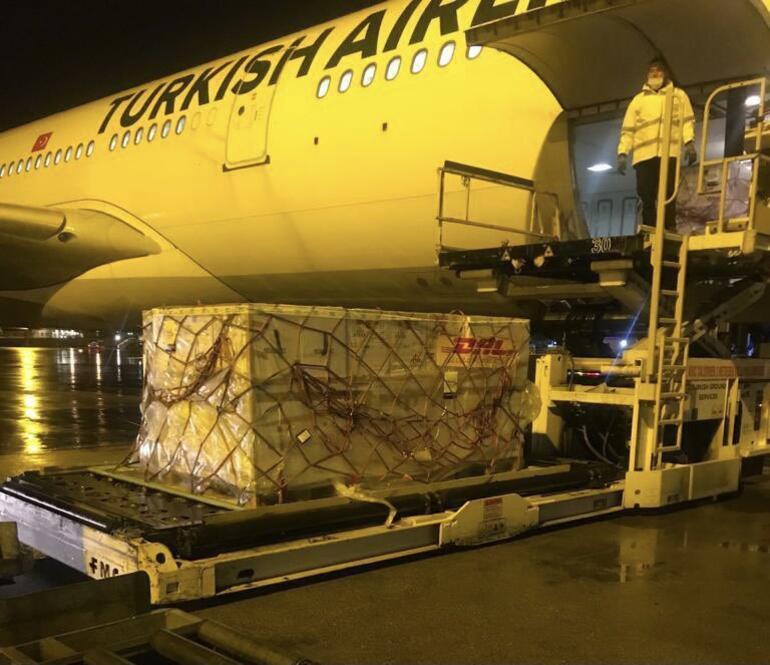
Turkey has received about 1.4 million doses of the COVID-19 vaccine developed by Germany’s BioNTech in two days, the country’s health minister has said, adding that administration of the jab will start next week.
Some 5,800 doses of the injection already arrived in Turkey last week for testing purposes.
More than 700,000 doses of the jab were delivered to the country on March 24 and Turkey also received around 750,000 doses on March 23, Fahrettin Koca announced on Twitter.
“This vaccine will be used for the first time in our country. The vaccine will be administered in each center with appropriate storage conditions,” Koca noted.
He said the vaccines would be administered in Turkey starting next week after the completion of safety tests.
Founded in 2008 by Özlem Türeci and Uğur Şahin, a couple who are both children of Turkish immigrants in Germany, BioNTech has managed to develop the world’s first effective coronavirus vaccine together with its U.S. partner Pfizer.
Turkey began its four-stage vaccination program on Jan. 14. To date, the country has been using the jab developed by the Chinese pharmaceutical company Sinovac.
According to data from the Health Ministry, nearly 14.3 million doses of this vaccine have been administered in Turkey. Some 8.2 million people have received the first dose while more than 6.1 million people received both doses. This jab is administered in two doses, 28 days apart.
BioNTech’s vaccine arrived at a time when Turkey has been seeing a surge in the number of daily COVID-19 cases.
The cases have been increasing steadily since mid-February but since March 18, daily infections have been hovering above 20,000.
Some experts say Turkey is experiencing a third wave in the outbreak and cases are likely to increase further in April. They link the recent spike in infections to the virus variants, blaming particularly the U.K strain for the surge in cases.
The COVID-19 has also started to spread fast among children aged between 8 and 11, daily Milliyet reported.
The number of children treated for coronavirus has increased significantly over the past three weeks in some hospitals in Istanbul, the country’s largest city, according to the daily.
“We have been admitting children to our wards with severe pneumonia cases,” said Professor Haluk Çokuğraş from the Cerrahpaşa Medical School, adding that the U.K variant is affecting children and young people.
He warned that if the spread of the disease among children aged under 9 gathers pace, their parents aged between 30 and 45 would also be badly affected.
In the early stages of the outbreak, children transmitted the virus to their parents, but now it works the other way around, said Professor Zafer Kurugöl, an expert in pediatric infectious diseases at Ege University.